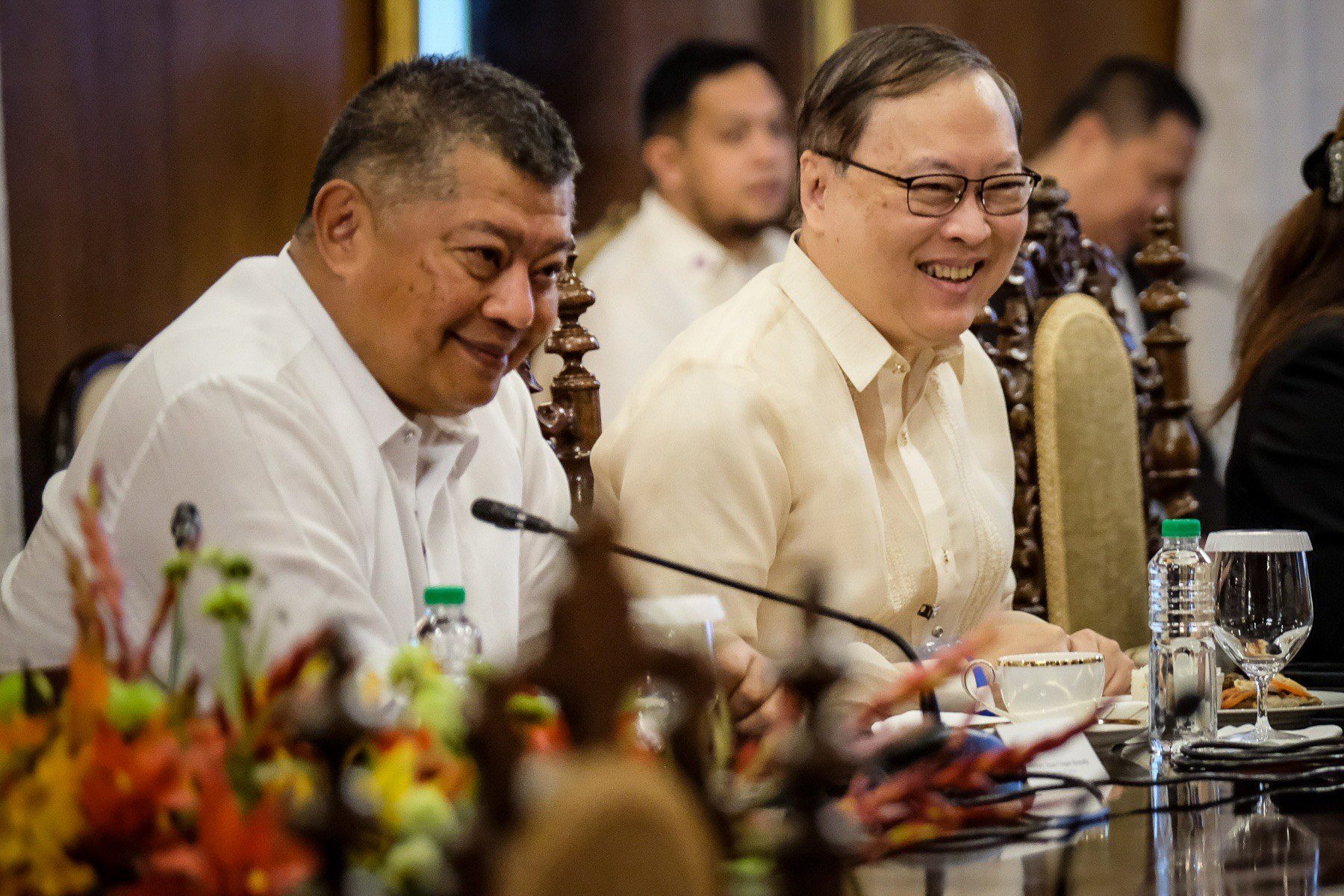SUMMARY
This is AI generated summarization, which may have errors. For context, always refer to the full article.

State regulators and telecommunication companies are currently having a “spirited debate” this Friday, April 28, over the possibility of government’s wishes coming true. This involves gradually cutting certain services, including access to Facebook or TikTok, for users who have yet to register their SIM cards.
Information and Communications Technology Secretary Ivan Uy earlier said that this is a way to “incentivize” the public to register, after the deadline for doing so was extended for 90 more days.

Uy wants to limit users’ ability to receive or make calls or access social media should they fail to register by the 60-day mark of the 90-day extension.
Uy went as far as saying that people are hard-headed and noted that the removal of these services would help them “feel” the urgency of registration. Uy added that the issue was not the lack of internet access or IDs, but “our bad habit of delaying until the last minute.”
Telcos agree that Uy’s plan, which by the way, is not in the SIM Registration Act’s implementing rules and regulations, is technically possible. But it will also drain more resources of telcos, which are already at the forefront of harvesting millions of Filipinos’ data. (READ: SIM registration extended for 90 days: Here’s what you need to know)
“With regards to the gradual deactivation being evaluated by the DICT, the discussions among the DICT, the NTC, and the mobile network operators are still ongoing. Our initial assessment is that it would be difficult for us to implement due to time constraints,” said Cathy Yang, first vice president and head of group corporate communications at PLDT and Smart.
Executives of Dito have a more not-so-subtle response.
“On those matters, you will have a very spirited debate, and a lot of that spirited debate will come from the Dito side. We have certain views on the proper way,” said Dito chief administrative officer Adel Tamano in a press briefing on Thursday, April 27.
Dito chief technology officer Rodolfo Santiago echoed Smart’s statement, highlighting the time constraints in Uy’s proposal.
“While technically it is feasible, the question is, do we have time to implement it the way government wants it implemented? Baka ‘yung area na ‘yun there will be some spirited discussions (in that area there will be some spirited discussions),” Santiago said.
Globe has yet to publicly state their position on the proposal. A source privy to the information already confirmed that they share a similar position to that of Smart and Dito.
Should the government’s idea push through, it adds another responsibility for telcos that are already pouring resources into SIM registration and striving to keep user data secure.
Scare tactics
Junk SIM Registration Network and allied organizations condemned what they referred to as the government’s use of “scare tactics.” The groups said that this is government’s way to force people to comply through deceptive and manipulative means.
“Instead of resorting to scare tactics, we hope the government will pay serious attention to the concerns of data privacy and IT advocates on how the law will only worsen scams and surveillance, rather than help them,” said Maded Batara III, spokesperson of the Junk SIM Registration Network.
Telco executives who refused to be quoted told reporters that Uy’s request to cut off calls and access to Facebook or TikTok violates the right to free speech and information.
Recall that the SIM Registration Act is already being challenged before the Supreme Court precisely on these points.
Telco executives also hinted that Facebook or TikTok may need to come out with their position. After all, this may adversely impact their bottom line in the Philippine market.
As of April 26, only 55% or 92.56 million of the total of 168 million active SIMs have been registered.

Telcos still support SIM registration
Telcos have been struggling to register all their subscribers, especially those who do not have a valid identification card and live in remote areas.
For instance, new telco player Dito is lagging behind, registering only 41% of its 14.9 million subscribers.
It is aiming to double its subscribers this year to 28 million, but Tamano admitted it will be “very challenging to hit target” precisely because of the SIM registration.
This also spells trouble for the third telco player, which launched commercial operations only in 2021. As of 2022, its gross revenue reached P7.2 billion, but it posted a net loss of P25 billion due to its capital-intensive rollout.
Despite the financial challenges, Tamano said that SIM registration is generally good for business, as it gives the telco industry a better picture of just how many users there really are in the market.
There are more SIMs than there are people in the Philippines, and most people only have one phone.
“Some people buy a new SIM and throw it away after the freebies have expired. With SIM registration, people will value SIMs more because you have to register before you can use,” Tamano said. –Rappler.com
Add a comment
How does this make you feel?
![[OPINION] A big defeat for Big Tech](https://www.rappler.com/tachyon/2024/03/big-defeat-big-tech-march-27-2024.jpg?resize=257%2C257&crop=425px%2C0px%2C1080px%2C1080px)




There are no comments yet. Add your comment to start the conversation.